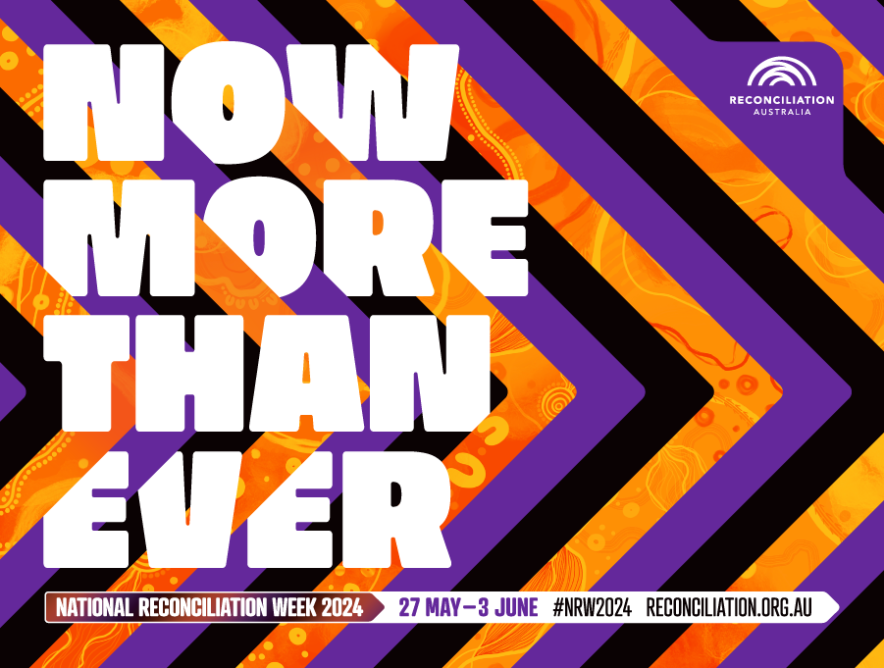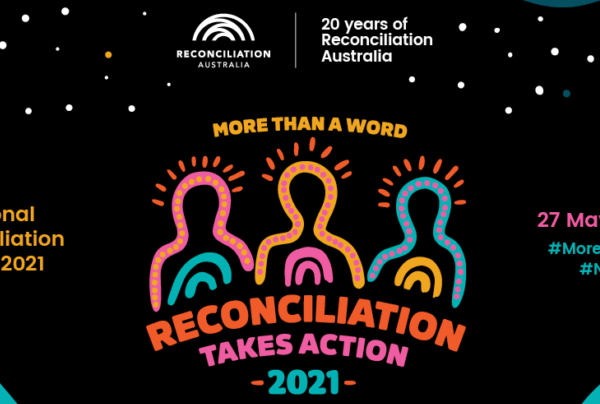Reconciliation Week tips to drive the theme of ‘Now More Than Ever’

The 2024 theme for National Reconciliation Week (NRW) has been announced, reflecting that when it comes to exploring and re-committing to how Australia can progress reconciliation in education and across the nation, there is a need to act ‘Now More Than Ever.”
Held from 27 May to 3 June, NRW is a time for all Australians to learn about our shared histories, cultures, and achievements, and to explore how each of us can contribute to achieving reconciliation in Australia.
In early childhood education and care (ECEC) settings, NRW is an important occasion. ECEC professionals, as part of the National Quality Standard and the Approved Learning Frameworks are tasked with embedding Aboriginal and Torres Strait Islander perspectives into their services and programs, something which is the shared responsibility of approved providers, educators, and other professionals working in ECEC settings, regardless of whether Aboriginal and Torres Strait Islander children and families are enrolled.
Now More Than Ever
The theme ‘Now More Than Ever’ acts as a reminder that all Australians should continue to work together for the justice and rights of Aboriginal and Torres Strait Islander peoples. NRW presents an opportunity, ‘now, more than ever,’ to explore and recommit to how we can progress reconciliation in education and across the nation.
The approved learning frameworks reflect the Alice Springs (Mparntwe) Education Declaration (Education Council, 2019), in particular, the Declaration’s Goal for all young Australians to be “…successful, lifelong learners, and active and informed members of the community…[who] possess the knowledge, skills and understanding to contribute to, and benefit from, reconciliation between Aboriginal and Torres Strait Islander peoples and non-Indigenous Australians”.
When the frameworks were recently revised, a vision for children’s learning was added, which emphasises how knowledge of, and respect for, Aboriginal and Torres Strait Islander peoples, histories and cultures can positively impact children’s Belonging, Being and Becoming.
Working towards Reconciliation
To advance reconciliation, ECEC services should genuinely, respectfully and authentically embed Aboriginal and Torres Strait Islander perspectives across planning, policies, practices, philosophies, and all service environments and operations, ACECQA has stated.
As well as committing to their own continued learning, un-learning and re-learning as part of the reconciliation process, Educators are encouraged to consider how children can also be active citizens and agents of change who, through their learning about Aboriginal and Torres Strait Islander perspectives, are motivated to contribute to the intergenerational reconciliation movement.
ACECQA has provided some examples of what respectfully embedding Aboriginal and Torres Strait Islander perspectives in philosophy and/or practice may look like:
- Building genuine and authentic partnerships with local Aboriginal and Torres Strait Islander people and communities, and, through these relationships, actively listening to and learning about First Nations perspectives and experiences. Acknowledging the strengths and capabilities of Aboriginal and Torres Strait Islander families and local community members assists in fostering wellbeing and reinforcing and affirming a positive sense of identity for First Nations children, all the while supporting important learning and relationship-building processes of all who are connected to the service.
- Showing deep respect for the Elders and Traditional Custodians of the Lands on which services reside, including through incorporating Acknowledgement of Country protocols and practices as an opportunity for shared reflection amongst Educators, children and families about the importance of Country/place and its connection to local histories and cultures.
- Educators critically reflecting on Aboriginal and Torres Strait Islander ways of knowing and being to ensure contextually and culturally responsive ways of including First Nations perspectives within a service’s philosophy; curriculum planning and implementation; and wider everyday environments and operations.
- Committing to the wider Actions and steps involved in developing and implementing a whole-service Reconciliation Action Plan (RAP).
Additional resources
To further assist in respectfully embedding Aboriginal and Torres Strait Islander perspectives and progressing reconciliation, ACECQA encourages services to engage with the following resources on Reconciliation Australia’s Narragunnawali platform:
- Reconciliation Toolkits: Recognising that reconciliation is everyone’s business, and for everyone’s benefit, these toolkits contain comprehensive guides and core resources for diverse members of educational communities
- Early Years Learning Framework and My Time Our Place RAP Actions: These Actions talk directly to the relationship between reconciliation and the Approved Learning Frameworks, with resources to support Educators to actively honour this relationship in practice
- Professional Learning: Aligned to RAP Actions and professional teaching standards, these resources support Educators’ personal and professional learning journeys within the wider journey of reconciliation-in-education.
For more information in the lead up to NRW follow the Celebrate National Reconciliation Week (RAP) Action page, as well as the webinars and workshops pages, where resources specific to the 2024 NRW theme will become available in the coming weeks.
Guidance for this piece has been drawn from an ACECQA blog post which may be accessed here.
Popular

Quality
Practice
Provider
Research
Workforce
Honouring the quiet magic of early childhood
2025-07-11 09:15:00
by Fiona Alston

Practice
Provider
Quality
Research
Workforce
Embedding cultural safety and responsiveness to strengthen belonging in early childhood education
2025-07-14 13:21:23
by Contributed Content

Quality
Practice
Provider
Research
Taking a leap: Why risky play matters
2025-07-15 09:53:58
by Fiona Alston












